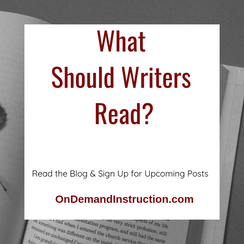
Yes, Writers Need to Read
Every once in a while I run across a non-reading writer. Part of me is fascinated by the non-reader for a zillion reasons. Why would anyone write without reading? Why would a writer refuse to read what others are writing? How can a writer engage in the process of sharing information without reading? How are the non-reader’s messages so valuable that they won’t read from anyone else? How on earth would the non-reading writer become a better writer if they don’t read? I don’t understand it, but I’m fascinated by it. And I want non-reading writers to know it's OK to start reading, because reading supports our writing. Maybe it’s connected to our couch-potato culture. Maybe the phenomenon is related to the idea that a person is athletic if they watch football. Or that someone is a film critic if they have seen the last dozen Marvel movies. Or is it that we have a hopeful, positive spirit as a people and envision that any of us can grow up to be anything we want? Isn’t that part of what drives us to keep buying lottery tickets on Saturday mornings?
Unlike football or watching movies, writing is not a spectator sport. Writers may be hiding in the back of the café with their noses pointed into a laptop screen, but they aren’t separated from society; rather they are closer to it.
I think most writers read and love to read. For many writers, the writing process is a cyclical flow of how we live our lives. We read, we interact, we observe, and we write. These steps flow together in a sort of creative pattern that engages us with the pulse of what’s happening around us and allows us to process life into stories. Reading provides tangible benefits for writers. It keeps writers abreast of new writing in the world. It provides constant connection to the writing world. Every writer I know asks, “Have you read this book?” as part of their everyday conversation. Reading connects us to each other. And finally, reading hones the writing muscles. Although writing is a different process than reading, the act of reading hones our sense of language, structure, and flow. We have a better sense of what our writing should look and feel like when we read. So, what should writers read? I mean, bookstores are big places after all. What kinds of books provide the most fuel for the writer’s tank?
Read in Your Genre
What genre (or genres) do you write in? Are you a novelist focused on science fiction, horror, or post-modernist fiction? Is your current project a memoir that has taken a life of its own? Or are you intent on writing a nonfiction series to share what you learned in your career with newbies to the field? You should be reading other writers in your writing genre of choice. Every once in a while, I hear someone say they don’t want to read in their own genre, because they’re afraid of accidentally stealing other people's ideas or allowing another writer’s style to rub off on them. Honestly, that’s just silly. If you run across a good idea, use it. If someone else has a smoother style, learn from it. Whatever you write will be your own and will continue to develop over time. Reading in your genre will sharpen your own writing, inform your practice, and help you hone your space within the genre. Subscribe to the blog and get tips and tricks to support your writing
Success! Now check your email to confirm your subscription.
Read Outside of Your Genre
Not only is it a good idea to read in your genre, but I’d also recommend that you read outside of your genre. There is so much to be gained by reading across the bookstore’s aisles. For example, I recently recommended Eat Like a Fish by Bren Smith. It’s a nonfiction account of his experiences as a fisherman and later sea farmer. The writing is exquisite and highly engaging. It doesn’t feel like nonfiction, although every word is true. I recommended the book to a group of novelists. I think there is a lot that fiction writers can learn by reading good quality nonfiction. Smith is a master at telling a whole story in a single paragraph. His narrative style pulls the reader straight into the book and makes you care about the depth and complexity of the issues. And guess what? That is exactly what novelists are seeking to do. Read outside your genre and seek out the gems hidden in the pages of those books. It can go far in informing your writing style.
Read About Writing
There are at least a hundred books about writing. As you peruse the bookstore’s shelves, you’ll find books on how to be a better writer, memoirs on writer’s lives, and guidebooks on everything from the business of writing to the challenges of editing your own work. Read those books. Every one of them won't speak to you, so lean toward the ones that stand out—but read them. I find that most writers have a few of these books they love and tend to return to time and again to re-read. Three of my favorites are On Writing by Stephen King, Bird by Bird by Anne Lamott, and Zen in the Art of Writing by Ray Bradbury. They’re spectacular. Every time I read these books, I feel like I’m reading a new book and I learn something different. By reading about writing, you can better understand both the art and business of writing and where your work fits into the puzzle. You can also sharpen your own practice and work out the details so that your writing process fits your lifestyle and needs. By reading about writing, we become better writers. So, if you aren’t a reading writer, it’s OK. You can change your ways and start reading today. And if you are reading already, you may want to look at what you’re reading and how well that genre guides your practice and supports your craft. Are you getting everything you need from your current process or do you need to update your choices to include more options? I tend to read in one genre too often, so the reminder to read in multiple genres helps me to branch out and read more broadly, and that reading pushes me to consider a broader audience when I write. You may be similar. If you aren’t sure where to start, look at the genre you’re writing in now. Hit your local bookstore (or library!). Start with one genre and grab what interests you. After you read that first book, branch out and read a book about writing or in another genre. Read. Rinse. Repeat. With every book you read, you will become a better writer. Related Blog Posts
Comments are closed.
|
About the SiteWelcome, Writers! Archives
September 2023
|

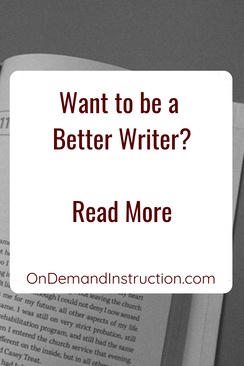

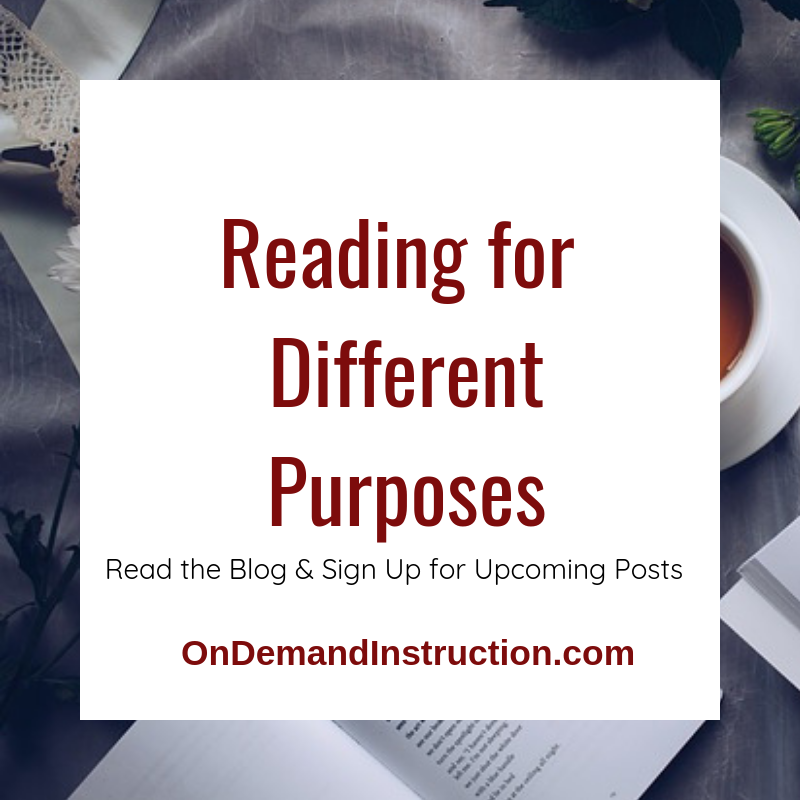
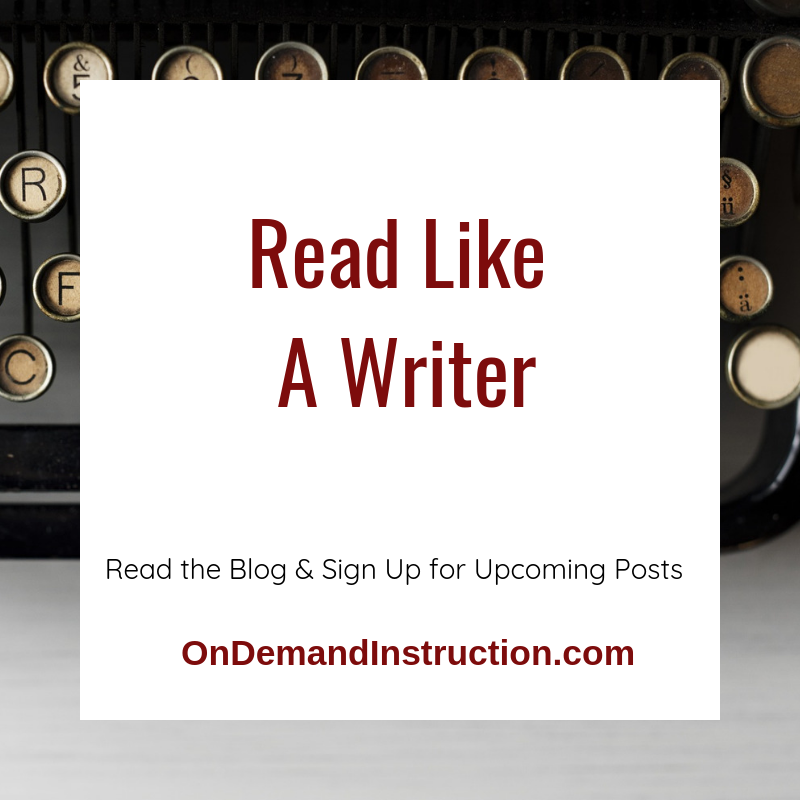
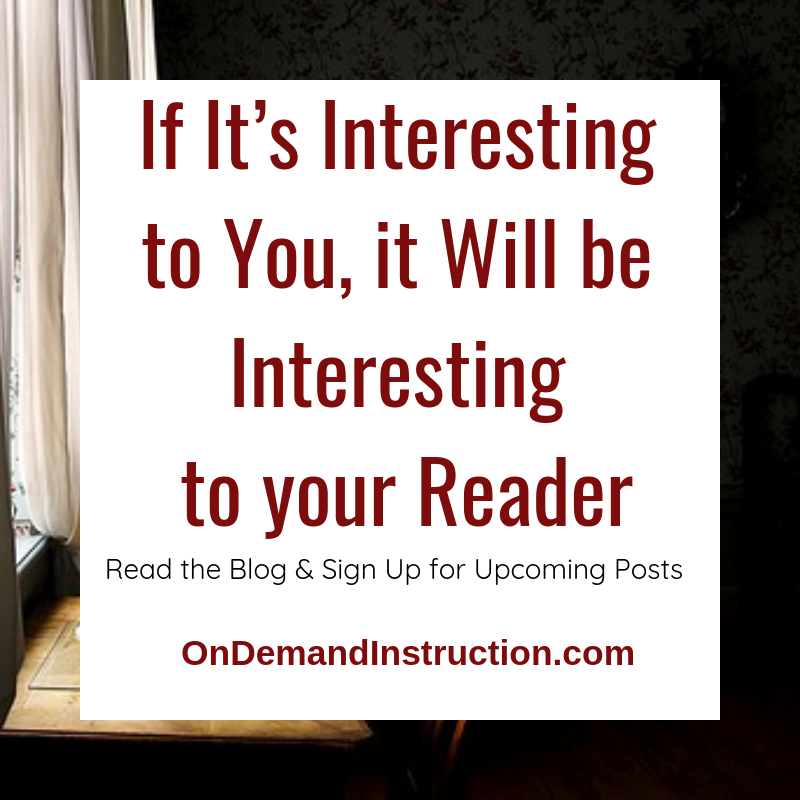
 RSS Feed
RSS Feed